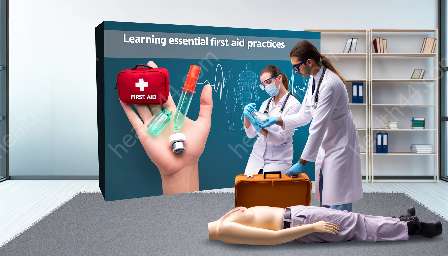Poisonings and substance overdoses can be life-threatening emergencies that require prompt and appropriate action. It is crucial to have a clear understanding of the signs, symptoms, and necessary steps to take in responding to these situations. In this topic cluster, we will explore how to effectively respond to poisonings and substance overdoses, incorporating first aid techniques and health education principles.
Understanding Poisonings and Substance Overdoses
Before delving into the response and management of poisonings and substance overdoses, it is essential to understand what constitutes these incidents. Poisonings occur when a person is exposed to a substance that can cause harm when ingested, inhaled, injected, or absorbed through the skin. This can include household chemicals, medications, plants, and other toxic substances.
Substance overdoses, on the other hand, involve the consumption of a greater amount of a substance such as drugs or alcohol than the body can handle. Both poisonings and substance overdoses can lead to severe health complications, including organ failure, respiratory distress, and even death if not addressed promptly and effectively.
Recognizing Signs and Symptoms
Recognizing the signs and symptoms of poisonings and substance overdoses is crucial for initiating appropriate interventions. Common indicators may include but are not limited to:
- Altered mental status - including confusion, dizziness, or unconsciousness.
- Respiratory distress - difficulty breathing, shallow or rapid breathing, or no breathing.
- Physical symptoms - such as vomiting, diarrhea, seizures, and abnormal pupil size.
- Exposure history - being informed that a person has ingested or come into contact with a toxic substance.
It is essential to stay vigilant and act quickly when any of these signs and symptoms are observed, as immediate intervention can greatly impact the outcome for the affected individual.
First Aid Response to Poisonings and Substance Overdoses
Providing first aid in cases of poisonings and substance overdoses can help stabilize the individual's condition until advanced medical help arrives. Immediate actions may include:
- Calling for Emergency Assistance - Contacting emergency services or poison control centers is imperative to ensure that professional help is on the way.
- Ensuring Safety - As a first responder, it is important to protect yourself and others from exposure to the toxic substance.
- Assessing the Situation - Gathering information about the substance involved and the individual's condition can aid in providing effective assistance.
- Supporting Breathing - If the person is not breathing or experiencing difficulty, administering CPR or rescue breathing may be necessary.
- Providing Comfort and Reassurance - Maintaining a calm and reassuring presence can help alleviate anxiety and stress for the affected individual.
Additionally, specific first aid measures may vary depending on the type of poisoning or substance involved. For example, the management of ingestions, inhalations, or exposure to different types of toxins or drugs may require tailored approaches.
Health Education and Medical Training
Health education and medical training play a crucial role in equipping individuals with the knowledge and skills needed to respond to poisonings and substance overdoses effectively. Through educational programs, individuals can become familiar with the dangers of various toxic substances and learn how to identify, prevent, and respond to poisoning incidents.
Training in first aid and emergency response further enhances the capability of individuals to provide immediate assistance when faced with poisonings and substance overdoses. This training can cover topics such as basic life support, recognizing common toxins, administering antidotes, and safely managing poisoning situations until professional help arrives.
Moreover, health education initiatives within communities, workplaces, and schools can raise awareness about the risks associated with substance abuse and the importance of seeking help for overdose situations. By promoting a better understanding of these issues, individuals can be empowered to take action and save lives.
Conclusion
Being prepared to respond to poisonings and substance overdoses is a valuable skill that can make a significant difference in saving lives. By combining the principles of first aid, health education, and medical training, individuals can develop the confidence and competence to address these emergencies effectively. Understanding the signs, symptoms, and appropriate response measures is essential for mitigating the impact of poisonings and substance overdoses, ultimately contributing to a safer and healthier community.



